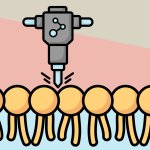
News • Molecular machines
Killing cancer cells: the 'jackhammer' approach
Using a unique new technique, US researchers hope to offer a safer and more effective alternative to current cancer treatments, reporting promising first results in mice.

Using a unique new technique, US researchers hope to offer a safer and more effective alternative to current cancer treatments, reporting promising first results in mice.

New research from Copenhagen University Hospital – Rigshospitalet and Herlev and Gentofte Hospital has shed new light on the immune system’s complex struggle against the coronavirus.

Today, a large part of all further medical treatments is based on the results of laboratory analyses. The demand for complex test procedures remains high and the challenges for laboratories are growing.
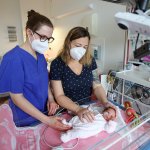
True or false: Webcams have only recently been introduced in neonatology and are a patient-side component of the Digital Health Portfolio. False! Already in 1989, Professor Dr Roland Wauer at Charité Berlin built his DIY system to transmit images from the neonatology ward.

The European Football Championship in 2021 had an impact on the participating countries' coronavirus infections, a new study shows. However, the extent depended greatly on the initial situation.
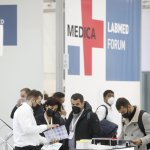
At this year's Medica tradefair, laboratory medicine, medical technology and life sciences give new impulses to the entire healthcare market - especially in times of the corona pandemic. An overview.
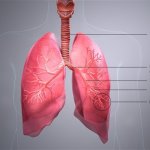
Despite treatment, chronic lung diseases such as COPD or cystic fibrosis can become so severe that a lung transplant is necessary. Dr Urte Sommerwerck explains which patients might be considered for transplantation and why follow-up is as important as the surgery itself.

Vaccination projects across the world are at a pivotal post-Covid moment, according to one of the leading experts in the field. Speaking to Healthcare in Europe ahead of the World Innovation Summit for Health (WISH) congress in Qatar – where vaccination will be a central topic – Dr Jerome Kim said there is an urgent need to regain a ‘positive consensus’ around the value of vaccines. He…

COVID-19 pandemic has caused “global collateral damage” by disrupting cardiac services . Across the world problems with heart health will “...continue to accrue unless mitigation strategies are speedily implemented”.

Contrast agents in the wastewater and power-hungry imaging systems: The eco-footprint of healthcare is huge, and radiology departments are among the main culprits. An expert panel at the ECR Overture explored ways to make the field “greener”.
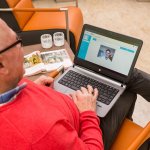
Cardiac rehabilitation can be done just as well at home as in the hospital. This is the conclusion of the most extensive research into ‘tele-rehabilitation’ to date.
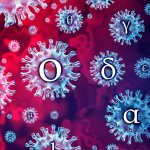
Professor Richard Neher from the Biozentrum of the University of Basel is using his Nextstrain platform to investigate which variants of the SARS-CoV-2 virus are currently circulating worldwide.

Since its introduction around 60 years ago, the screening of newborn babies for immune, hormone and metabolic disorders has prevented many people from experiencing severe disease progression. The scope of systematic early testing has been significantly enhanced through mass spectrometry (MS). In our interview, Professor Uta Ceglarek, one of the driving forces behind the introduction of MS…

Some ten years ago, it was unthinkable that virtually all company data was stored in the cloud. Now it’s what almost every company does. However, the increasing complexity of corporate IT infrastructures also comes at a price. The sheer size and complexity of the systems makes it difficult to keep track of everything that is going on digitally. And this leads to more and more successful…

X-ray vision, context-sensitive guidance, coordinator, training assistant and more: augmented reality (AR) has hit the OR. While still in its infancy AR does grow rapidly and has already shown enormous potential. University Professor Dr Rüdiger von Eisenhart-Rothe, Chair of Orthopaedics and Sports Orthopaedics at the Technical University Munich, explains the advantages of different AR…
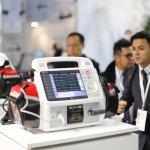
Since Compamed could only be held digitally last year, due to the pandemic, the event now takes place publicly again. Almost 500 registrations from exhibitors prove that there is a high level of interest from medical technology suppliers – a huge step towards reaching normality again.

The Corona pandemic has a major impact on all areas of life. Nearly everyone is affected in some way – in their health, in their jobs, in their entire lives. But there are also notable bright spots. Chief among these effects is the rapid development of vaccines, test kits and, in the future, medicines that are making a significant contribution to overcoming the crisis. Microfluidic components…

"Virtual Care & Digital Therapeutics", "Medical Artificial Intelligence & Robotics", "Fields of Innovation" and "Societal aspects of digitized healthcare" are the topics of this year's Health IT Forum at Medica. New this year: In line with the hybrid event concept of the trade fair, the Expert Panels, Tech Talks and Deep Dive Sessions can be…
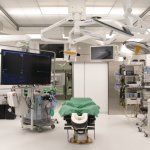
At their workplace, neurosurgeons often have to make compromises since most ORs were not designed with the specific needs of their discipline in mind. To address this issue the University Hospital in Essen, Germany, equipped an OR especially for neuro- and spine surgery. The aim is nothing less than revolutionizing the field with the help of digitalisation and cutting-edge technology.

“Twindemic” is a term that has not yet been in the headlines but is likely to become part of our lexicon as the summer progresses.

Scientists at Lausanne University Hospital (CHUV) and École polytechnique fédérale de Lausanne (EPFL) have discovered a highly potent monoclonal antibody that targets the SARS-CoV-2 spike protein and is effective at neutralizing all variants of concern identified to date, including the delta variant. Their findings are published in the journal Cell Reports.

Delegates at an international radiography conference were given an insight into the impact Covid-19 has had on their profession and practice in five countries across the world. A special session at the online ISRRT (International Society of Radiographers and Radiological Technologists) congress in Dublin (August 20-22) heard experiences from Thailand, Nigeria, Italy, India and Ireland, with…

Home test kits to check for Covid-19 spike proteins and anti-Covid-19 antibodies are fast and simple to use but lack the sensitivity and accuracy of laboratory tests. Researchers from Eindhoven University of Technology with Utrecht University have developed a new type of sensor that combines the sensitivity and accuracy of current laboratory-based measurements with the speed and low-cost of…
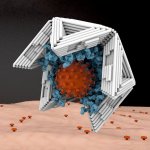
To date, there are no effective antidotes against most virus infections. An interdisciplinary research team at the Technical University of Munich (TUM) has now developed a new approach: they engulf and neutralize viruses with nano-capsules tailored from genetic material using the DNA origami method. The strategy has already been tested against hepatitis and adeno-associated viruses in cell…
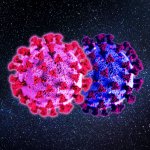
Although the coronavirus affects men and women differently, the vast majority of clinical trials do not mention sex/gender, a new analysis of 4,420 studies concludes. Ultimately, it can influence the treatment negatively. The meta analysis is published in Nature Communications. According to the new research, only 4 percent of 4,420 registered studies explicitly plan to address sex and gender in…

Rapid tests effectively broke Covid-19 infection chains in spring 2021. This is shown by a model developed by researchers of the ECONtribute: Markets & Public Policy Cluster of Excellence of the Universities of Bonn and Cologne, the Collaborative Research Center Transregio 224 EPoS of the Universities of Bonn and Mannheim, and the Institute for the Study of Labor (IZA). According to the…

When patients are admitted to a hospital emergency room (ER) it is immediately vital to determine whether s/he has Covid-19. However, with a regular PCR test a result can take up to a few hours. Thus, initially, the patient must be isolated. During the height of the corona pandemic last year, researcher Ruben Deneer from Eindhoven University of Technology (TU/e) and clinical chemist Arjen-Kars…

Epstein-Barr virus (EBV) reactivation resulting from the inflammatory response to coronavirus infection may be the cause of previously unexplained long Covid symptoms—such as fatigue, brain fog, and rashes—that occur in approximately 30% of patients after recovery from initial Covid-19 infection. The first evidence linking EBV reactivation to long Covid, as well as an analysis of long Covid…
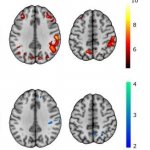
The effects of Covid-19 on the brain can be accurately measured with positron emission tomography (PET), according to research presented at the Society of Nuclear Medicine and Molecular Imaging (SNMMI) 2021 Annual Meeting. In the study, newly diagnosed Covid-19 patients, who required inpatient treatment and underwent PET brain scans, were found to have deficits in neuronal function and…

A study of healthcare workers shows they were three times more likely to become infected during the Covid-19 pandemic compared to the general population. Around one in five of workers who were infected were asymptomatic and unaware they had Covid-19. The study published in ERJ Open Research also shows that it was not only frontline staff who faced the higher risk, suggesting that there was…

Does overcoming a SARS-CoV-2 infection protect against reinfection? The “Rhineland Study”, a population-based study conducted by DZNE in the Bonn area, is now providing new findings in this regard. Blood samples taken last year indicate that an important component of immunity – the levels of specific neutralizing antibodies against the coronavirus - had dropped in most of the study…

Rapid tests, PCR tests, self-tests… there are many test options to determine contamination with Covid-19. In most this is done by inserting a cotton swab deep into the nose and/or throat to extract some mucus – unpleasant for adults and often a drama for children. Towards the end of 2020, a new system emerged to rule out a Covid-19 contamination. The electronic SpiroNose performs a…

Temperature control equipment and systems company Lauda is expanding its portfolio with its new Versafreeze product line. This consists of high-quality ultra-freezers which have been optimized for the extreme requirements of deep-freeze storage. Lauda thereby meets the requirements of vaccine producers, pharmaceutical service providers, vaccination centers and universities for the safe storage of…

Apheresis, a procedure that separates and removes particular blood constituents, shows promise for Covid-19 cases: the first patient successfully underwent so-called CRP apheresis, which can prevent potentially fatal consequences of the infection.

The PCR test is the most accurate tool to identify SARS-CoV-2. However, valid results are often available only after days. Moreover, the laboratory must be well equipped, have trained personnel and sufficient financial resources. All of this is usually a problem in Africa. A portable suitcase could help. In cooperation with several African universities, scientists at Leipzig University have found…
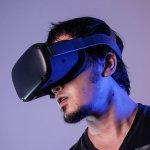
People who are sceptical of getting vaccinated against infectious diseases may soon get a whole new perspective on things. Professor Robert Böhm and Associate Professor Guido Makransky from the Center for Social Data Science (SODAS) and the Department of Psychology at the University of Copenhagen have received DKK three million in funding from EIT Health for developing a virtual reality app to…

In order to detect the Corona virus SARS-CoV-2, there are further methods of diagnosis apart from the globally used PCR tests (Polymerase chain reaction): The infection can also be recognised on CT scans – for which Artificial Intelligence (AI) can be used as well. An AI system can not only filter CT scan of Covid-19 patients from a data set, but also estimate, which areas of the image are of…

The continuing corona virus epidemic has impacted strongly on cancer care and research, including the delay of treatments and diagnoses as well as on trials of new therapies, and the shift in research to develop a Covid-19 vaccine. However, the session ‘Cancer research and Covid-19’, during the National Cancer Research Institute (NCRI) Virtual Showcase (online 2-3 November) looked at how UK…

The corona pandemic, which has been rampant for a year, and the Ebola epidemic of 2017 have shown the value of online courses for the rapid worldwide dissemination of life-saving knowledge, the German Hasso Plattner Institute (HPI) points out. One year ago, the World Health Organization (WHO) published its first online course on Covid-19 diseases. HPI head Prof. Christoph Meinel reflects on its…
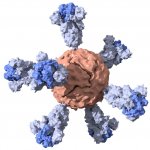
Before the pandemic, the lab of Stanford University biochemist Peter S. Kim focused on developing vaccines for HIV, Ebola and pandemic influenza. But, within days of closing their campus lab space as part of Covid-19 precautions, they turned their attention to a vaccine for SARS-CoV-2, the virus that causes Covid-19. Although the coronavirus was outside the lab’s specific area of expertise,…

The Corona pandemic poses new challenges for health care facilities as well as manufacturers of health IT and medical technology. Marcel Herrmann, Marketing Manager Medical Imaging at JVCKenwood, explains in an interview what these are and how they can be solved.

Inspired by remotely controlled surgical robots, professor and Vici laureate Jaime Gómez Rivas turned the corona crisis into an opportunity. He started to transform his lab into a remotely controlled experimental facility. And with success: the first paper based on entirely remote measurements is about to be published. ‘As soon as the lockdown began in March, I sat down and had a chat with my…
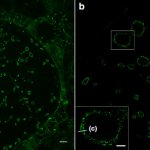
For the first time ever, expansion microscopy allows the imaging of even the finest details of cell membranes. This offers new insights into bacterial and viral infection processes.

A panel of experts from the USA and China highlighted AI use in radiological workflow during the Covid pandemic and identified current pitfalls during the Hot Topic session at RSNA 2020. Radiologists from the USA prioritised Covid articles, delivered quick reviews, made all results open access, and helped organise a white paper from the Fleischner Society recognising recommendations for the role…

Germany’s lack of diagnostic ability led to significantly underestimation of its own as well as global Covid-19 infection levels during the first wave. Now, however, improved testing and diagnosis of the condition more realistically reveal nearer 20,000 new cases a day across the country, according to Professor Hendrik Streeck, one of the country’s leading virologists. Speaking at a virtual…
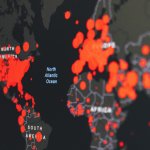
Digital epidemiology is on the frontline in the Covid-19 war, with innovative techniques used to observe and monitor this viral spread across populations. Its increasingly important role was outlined to a virtual session at Medica 2020 by theoretical biologist Professor Dirk Brockmann. In a keynote presentation ‘Perspective of digital epidemiology – opportunities, promises and challenges’,…
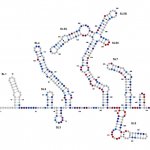
For the first time, an international research alliance has observed the RNA folding structures of the SARS-CoV2 genome with which the virus controls the infection process. This could not only lay the foundation for the targeted development of novel drugs for treating Covid-19, but also for occurrences of infection with new corona viruses that may develop in the future.
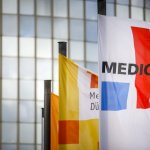
For the first time in the history of MEDICA, the world-leading medical trade fair, and the industry’s number one platform for the suppliers of the medical technology industry, COMPAMED, held from 16 to 19 November 2020, took place entirely online due to the pandemic - but still won over their audiences due to their high degree of international resonance in this format too, as virtual.MEDICA and…
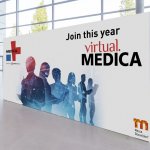
For the first time in their history, the world-leading medical trade fair MEDICA and the international number one event for the medical manufacturing supply market, COMPAMED, will be held entirely online as virtual.MEDICA and virtual.COMPAMED from Monday, with around 1,400 exhibitors hailing from 56 countries. Throughout the four days of the trade fair (16 – 19 November 2020), international…
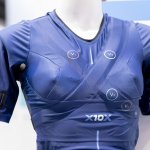
MEDICA in Düsseldorf is a world-leading platform for the medical technology business and the healthcare industry and has always been one of the places to be for the entire sector as it covers current digital health trends, innovative products and services for linking all of the major stakeholders in medical care. Consequently, digital health is a mainstay of virtual.MEDICA, which, due to the…
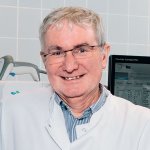
The academic teaching Karlsruhe Hospital, at the University of Freiburg, is the largest hospital providing tertiary care in the Middle Upper Rhine Valley. Every year, 63,000 in-patients and 180,000 out-patients are treated in the 1,500-bed facility with 50 departments and 30 out-patient clinics. Inevitably, a hospital of this size has a central lab. We spoke with Dr Horst Mayer, managing senior…

Why do most viral epidemics spread cyclically in autumn and winter in the globe's temperate regions? The answer is intimately related to our sun.

This year, the MEDICA LABMED FORUM will offer a high-profile programme with top speakers which is free for registered online visitors.
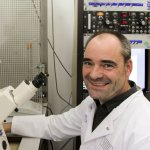
It is only 120 millionths of a millimetre in size but can bring entire countries to a standstill: the Corona virus. Even if it were to disappear one day, viral infections will still be among the most frequent and difficult-to-treat diseases in humans. Even decades of research have only produced a few standardized vaccines and strategies for treatment to combat just a small number of viruses. Nor…

Our immune system can efficiently fend off viral diseases. Two types of immune cells play an important role in this process: The T-cells, which firstly can directly destroy virus-infected cells and secondly enable the formation of efficient, virus-neutralizing antibodies by B-cells. These two cell types also play a crucial role in the immune defense against SARS-CoV-2 infection. Whereas antibody…
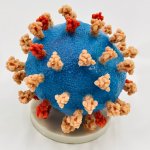
Adequate levels of vitamin D reduces complications and deaths among COVID-19 patients, reveals new research performed at the Boston University School of Medicine. Hospitalized COVID-19 patients who were vitamin D sufficient, with a blood level of 25-hydroxyvitamin D of at least 30 ng/mL (a measure of vitamin D status), had a significant decreased risk for adverse clinical outcomes including…
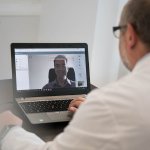
There are many reasons why for some patients a visit to the doctor’s office is difficult or well-nigh impossible – limited mobility after surgery, old age, or a handicap. For others, particularly in rural areas, the doctor is often far away and/or difficult to reach due to poor public transport. In times of corona, another important issue emerged: infection protection.

Medica 2020 and Compamed 2020, the information and communication platforms for the medical technology industry and supplier industry for the medical technology industry, will take place entirely online from 16 to 19 November. Within the framework of 'virtual.Medica' and 'virtual.Compamed', decision-makers from all sectors of the healthcare industry can then expect a comprehensive range of…

Researchers at ETH Zurich and the University of Bern have discovered a mechanism by which the coronavirus manipulates human cells to ensure its own replication. This knowledge will help to develop drugs and vaccines against the coronavirus.
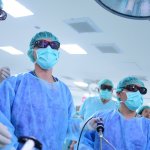
The healthcare system of Taiwan, renowned for its ability to tackle challenges, has held up very well during the COVID-19 pandemic. To underline the nation’s role as a healthcare innovator, the Taiwan External Trade Development Council (TAITRA) presented several of the most promising companies and their products in an exclusive webinar. The event showcased cutting-edge technologies as well as…

An infection with the coronavirus SARS-CoV-2 can affect multiple organs. With this in mind, researchers of the German Center for Neurodegenerative Diseases (DZNE) and Cornell University in the US have investigated cellular factors that could be significant for an infection. To this end, they analysed the activity of 28 specific genes in a wide range of human tissues.
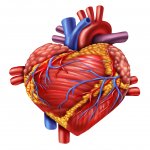
Heart patients hospitalised with COVID-19 can safely continue taking angiotensin-converting enzyme (ACE) inhibitors and angiotensin receptor blockers (ARBs), according to the BRACE CORONA trial presented in a Hot Line session today at ESC Congress 2020.(1)

Due to compromised immune systems cancer patients are at higher risk of contracting infections. How does cancer impact on patients who also contract Covid-19? To collect this data, four cancer registries, one in the EU, one in the UK, two in the USA, have been established. The first large, multi-institution study of the impact of Covid-19 was conducted in Wuhan, China, and presented at the…

The airborne transmission of the coronavirus SARS-CoV-2 via aerosol particles in indoor environment seems to be strongly influenced by relative humidity. This is the conclusion drawn by researchers from the Leibniz Institute for Tropospheric Research (TROPOS) in Leipzig and the CSIR National Physical Laboratory in New Delhi from the analysis of 10 most relevant international studies on the…

Researchers from Eindhoven University of Technology (TU/e) and the Catharina Hospital in Eindhoven have developed a new algorithm for the rapid screening for COVID-19. The software is intended for use in Emergency Rooms (ER), to quickly exclude the presence of corona in incoming patients. As a result, doctors need to conduct fewer standard coronavirus tests, increasing efficiency. The quick scan…
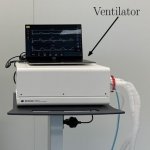
As the corona pandemic continues, mechanical ventilators are vital for the survival of COVID-19 patients who cannot breathe on their own. One of the major challenges is tracking and controlling the pressure of the ventilators, to ensure patients get exactly the amount of air they need. Researchers at the Eindhoven University of Technology (TU/e) have developed a technique based on self-learning…

Injuries in the nervous system of patients with severe COVID-19 are revealed by magnetic resonance imaging (MRI) and computed tomography (CT). In a study of 185 patients, researchers at Karolinska Institutet (KI) and Karolinska University Hospital show an affection of microscopic blood vessels and inflammation in the brain, meninges and nerves. The results are published in Radiology.

A significant number of patients reported a deterioration in their hearing when questioned eight weeks after discharge from a hospital admission for COVID-19, according to University of Manchester audiologists, in a study supported by the NIHR Manchester Biomedical Research Centre (BRC). One hundred and twenty one of the adults admitted to Wythenshawe Hospital, part of Manchester University NHS…

As the COVID-19 pandemic continues, finding a treatment to effectively fight the disease remains a major research challenge. Researchers from Inserm, CNRS, Université Claude Bernard Lyon 1 and ENS Lyon within the International Center for Infectious Disease Research (CIRI) have developed a unique strategy for selection, evaluation and repositioning of drugs already on the market to assess their…

Despite its proximity to China, Taiwan contained COVID-19 successfully, without a lockdown or movement restriction measures introduced elsewhere. With few new cases reported, life almost returned to normal. Behind the scenes, however, efforts have continued to maintain that positive situation.

In the course of the corona pandemic, hospitals and clinics are facing a serious challenge, as staff and patients are at increased risk of infection. Fever screenings are increasingly being carried out at entrances of healthcare facilities to identify persons with symptoms. Temperature checks are already part of daily operations at many airports.

While scientists recently confirmed the crucial role contact-tracing apps play in containing the COVID-19 pandemic, politicians are exploring which app architecture offers better privacy protection. However, there is no doubt that in Western countries such an entirely voluntary app can only be successful if the population at large supports it.

It remains one of the key questions of the current corona pandemic: Why do people infected with SARS-CoV-2 experience varying degrees of COVID-19, the disease which it triggers? Researchers, led by Professor Mascha Binder from University Hospital Halle (Saale), have investigated more than 14 million receptor sequences of B and T cells, i.e. immune cells, obtained from blood samples of COVID-19…

The COVID-19 pandemic has affected children with direct impacts of the infection as well as on them leading normal lives. Schooling, play and vaccinations are among issues that can affect children’s health. Delay in taking paediatric patients to the emergency room (ER) has also had a negative impact, for example late treatment of acute appendicitis. Two experts from Spain tackled these topics…

In many areas of our daily life, plastic is seen in a negative light. However, the ongoing SARS CoV-2 pandemic has profoundly changed our society with intensive efforts being made to find a way out of the crisis.

Researchers from Freie Universität Berlin at the Institute for Animal and Environmental Hygiene and the Institut für Textiltechnik (ITA) of RWTH Aachen University are collaborating on the topic of alternative personal protection equipment. The testing was conducted in the context of the EIT Health Project ViruShield, supported by the European Union, with the objective to discover alternative…

As the coronavirus pandemic continues, face masks become a common sight in our everyday lives. However, there is still lots of room for individuality, as these photos prove. Enjoy!

The extremely sensitive olfactory sense of dogs might prove to become a groundbreaking new tool in the fight against the COVID-19. Trained medical scent detection dogs have previously worked with identifying different types of cancers. Researchers at the veterinary and human medicine faculties at the University of Helsinki have now joined forces to identify COVID-19 infected individuals using…

A team of biochemists and virologists at Goethe University and the Frankfurt University Hospital were able to observe how human cells change upon infection with SARS-CoV-2, the virus causing COVID-19 in people. The scientists tested a series of compounds in laboratory models and found some which slowed down or stopped virus reproduction. These results now enable the search for an active substance…

It is possible to implement a privacy-respecting contact tracing app that can achieve widespread adoption in the UK, but only if the NHS, rather than the government, run it, researchers at Cass Business School have found. The researchers found that adoption rates increase further if the app is linked to priority testing for COVID-19 for those who get infection alerts. They also found that the…

Researchers in virology and veterinary bacteriology at the University of Bern have cloned the novel coronavirus (SARS-CoV-2). The synthetic clones are being used by research groups worldwide to test corona samples, find antiviral drugs and develop vaccines as quickly as possible. The method developed in Bern can also be used in future to combat other highly infectious viruses. In the…
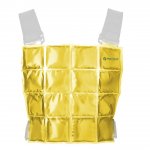
Hundreds of ICU doctors and nurses are currently fighting for the lives of others. The protective gear they are asked to wear is sealed and heavy, which can cause overheating. Especially for these doctors and nurses, the NOC*NSF has provided hundreds of cooling vests which would have otherwise been used by our athletes at the Olympics. Inuteq, the manufacturers of these cooling vests, is…

A team of researchers from Empa, ETH Zurich and Zurich University Hospital has succeeded in developing a novel sensor for detecting the new coronavirus. In future it could be used to measure the concentration of the virus in the environment - for example in places where there are many people or in hospital ventilation systems. Jing Wang and his team at Empa and ETH Zurich usually work on…
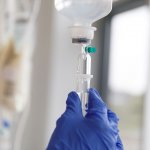
Cancer patients are particularly at risk for infections because of their disease and its treatment. Due to the rapid spread of the coronavirus in Europe, cancer centers within a short period were faced with the challenge of minimizing the risk of infection for these patients while at the same time not compromising the provision of the necessary treatments. Seven leading European cancer centers…
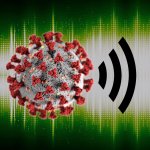
A new app, which will be used to collect data to develop machine learning algorithms that could automatically detect whether a person is suffering from COVID-19 based on the sound of their voice, their breathing and coughing, has been launched by researchers at the University of Cambridge. The COVID-19 Sounds App is now available as a web app for Chrome and Firefox browsers. Versions for Android…

The number of primary angioplasties – the main treatment for heart attack – has dropped by 40% in Spain since the beginning of the coronavirus lockdown. Other key diagnostic and therapeutic procedures have also considerably diminished. Spanish cardiologists are urging the population to call the emergency medical systems whenever symptoms of myocardial infarction occur, in spite of fears…

A team of Cardiff University scientists has switched from researching cancer to work that could help towards a vaccine for coronavirus. The team at the School of Medicine usually work on reprogramming viruses so they can target and kill cancer - but are now focusing their efforts to help in the fight against the new virus which is gripping the world. Dr Alan Parker and his team, whose work on…

Researchers at the German Red Cross Blood Donor Service in Frankfurt headed by Professor Erhard Seifried, and the Institute for Medical Virology at the University Hospital Frankfurt at Goethe University headed by Professor Sandra Ciesek succeeded in developing a procedure that makes it possible to immediately and dramatically increase worldwide testing capacities for detecting SARS-CoV-2.

Mathematical models can help shed light on the evolution of the coronavirus pandemic, according to Spanish mathematician Juan Luis Fernández Martínez, who predicted Spain could have between 90,000 and 160,000 infected patients. The next trend in epidemic data science will be to issue prediction models that focus on early detection.
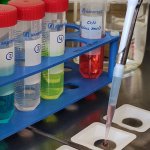
How long can coronavirus persist on surfaces such as door handles or hospital nightstands? How can the virus be destroyed effectively? A research team from Greifswald and Bochum, Germany, collected the answers scientists can currently offer to these and other pertinent questions and published them in the Journal of Hospital Infection.
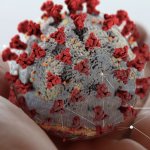
The coronavirus last week reached the Netherlands and began to spread around the country. How has the Dutch population reacted? What is a useful frame of reference for this situation? And what are the legal guidelines for dealing with the outbreak? Four researchers from the University of Amsterdam – a clinical microbiologist, an anthropologist, a social scientist and a health lawyer – explain…
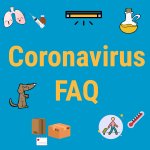
The current outbreak of the novel coronavirus disease (COVID-19) is making headlines by the minute. However, some less-than-trustworthy advice can be found among the information. Understandably, many people are concerned and confused. To prevent unnecessary panic, the World Health Organisation (WHO) has assembled advice for the public. Is it safe to receive parcels from China? Will sesame oil…
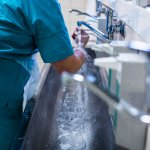
WHO Chief Adhanom Ghebreyesus has declared the novel coronavirus (SARS-CoV-2) a global health emergency. He said the decision was reached not because of the situation in China, but because of, “what is happening in other countries.” On Feb. 17, the number of infections totaled around 71,000 globally based on data of the WHO. COVID-19 – the official shorthand name of the novel corona virus…

Nine people have died and more than 400 have been sickened by the new corona virus spreading in China. A few cases have been confirmed in Taiwan, Thailand, South Korea, Japan and the U.S., and on Wednesday, the World Health Organization is holding an emergency meeting on the outbreak. How worried about a new pandemic should we be? Virus researcher Ali Mirazimi, adjunct professor at the Department…
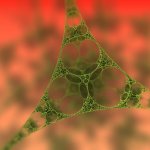
Tiny particles that can fight cancer or that can easily pass through any interface within our body are a great promise for medicine. But there is little knowledge thus far about what exactly will happen to nanoparticles within our tissues and whether or not they can cause disease by themselves. Within an international research consortium, Empa scientists have now developed guidelines that should…

The ‘Transmission, Prevention, and Reporting of Emerging Infectious Diseases’ program for the International Conference IMED 2016 in Vienna, this November, reflected events in the field of emerging diseases that have occurred over the last two years. Therefore, key congress topics included the Zika virus, the effects of global warming and the unusually high number of hospital-acquired…
Siemens Healthcare Diagnostics announced the release of PRISCA version 5.0 Prenatal Risk Calculation Software available in Europe, Asia, Africa, Latin America and the Middle East. The upgraded version offers the industry’s only Shared Database that allows laboratories to compare data and integrate patient demographic factors into the analysis. Both of these features help increase the accuracy…